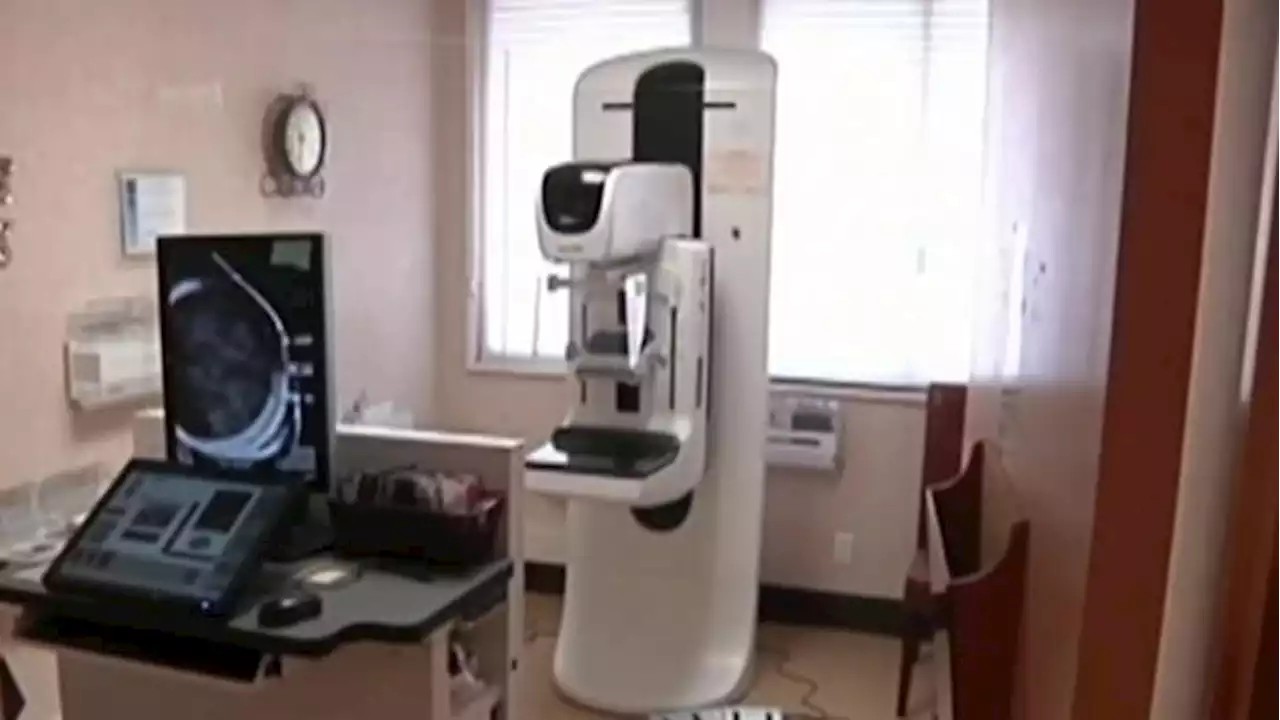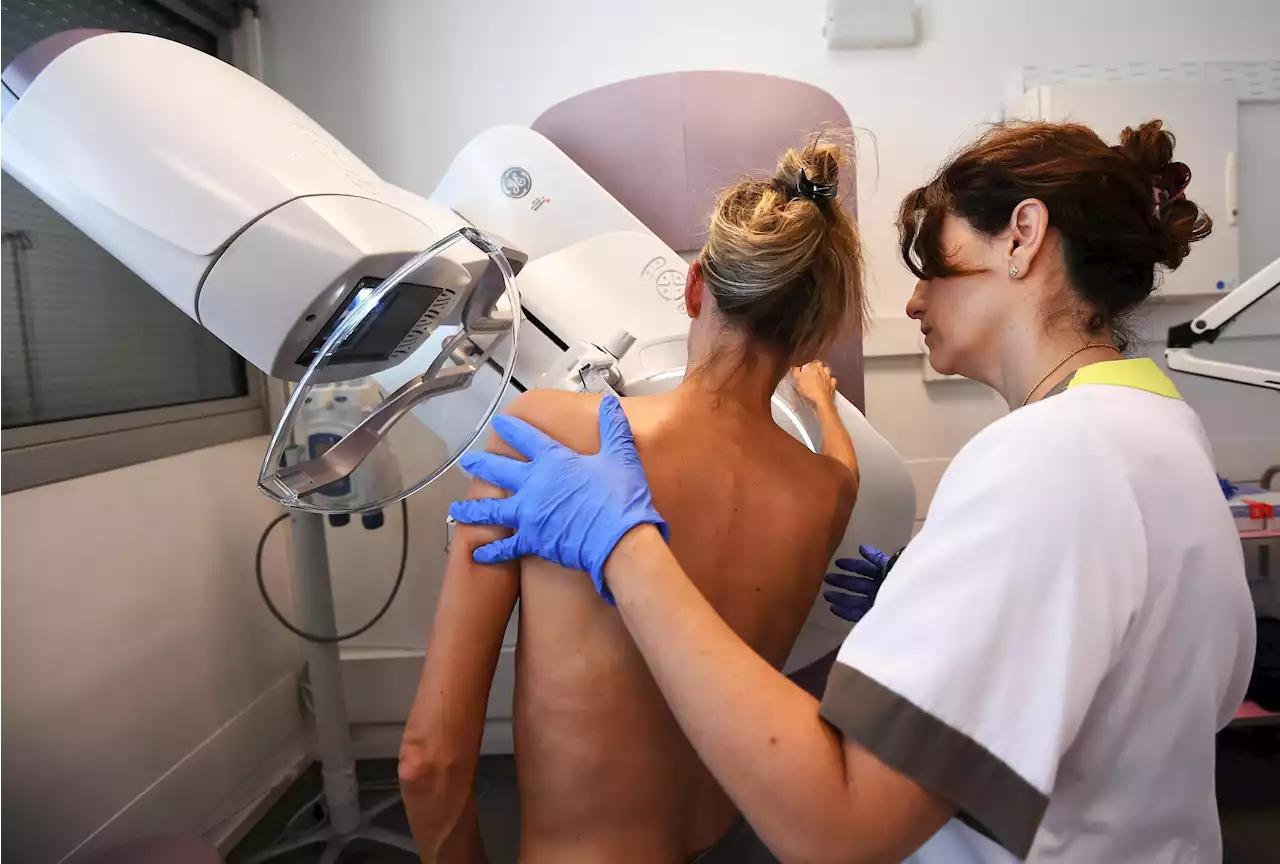The Covid-19 pandemic caused millions of women—especially Hispanic women and those with lower incomes—to forgo breast and cervical cancer screenings in 2020, according to researchers.
The Covid-19 pandemic caused millions of women—especially Hispanic women and those with lower incomes—to forgo breast and cervical cancer screenings in 2020, according to researchers from the American Cancer Society, who suggested obstacles such as financial difficulties and broader social and economic factors during the pandemic may have played a role in the reduced rates.
Breast cancer screenings decreased more among Hispanic, Asian and Native American women compared to white women, according to the study, which used survey data from the national Behavioral Risk Factor Surveillance System. The number of Asian and Pacific Islander women who reported completing a breast cancer screening also dropped by 27%, the largest decrease for any race.
Non-high school graduates were less likely than college graduates to complete breast and cervical cancer screenings, with a 17.7% decrease in cervical cancer screenings in 2020 for those who hadn’t completed high school compared to a 9.5% drop for college graduates.How these lower rates of screenings will affect potential cancer diagnoses and survival, according to Jemal, though researchers know cancer screenings save lives.
. Researchers have also found people of color are more likely than their white counterparts to be uninsured and encounter other barriers to accessing health care. Thestudy is the first to evaluate the impact of the coronavirus pandemic on cancer screenings on a national level using population-based data.
United States Latest News, United States Headlines
Similar News:You can also read news stories similar to this one that we have collected from other news sources.
 UK skin cancer deaths higher in men than womenThere are about 1,400 deaths a year from melanoma in men, compared to 980 in women, says Cancer Research UK.
UK skin cancer deaths higher in men than womenThere are about 1,400 deaths a year from melanoma in men, compared to 980 in women, says Cancer Research UK.
Read more »
 TSU to provide free breast cancer screenings to more than 1,300 minority womenThe $1 million grant from the Cancer Prevention and Research Institute of Texas, allows TSU to provide free breast cancer screenings and other services to more than 1,300 Black and other ethnic minority women over a three-year period.
TSU to provide free breast cancer screenings to more than 1,300 minority womenThe $1 million grant from the Cancer Prevention and Research Institute of Texas, allows TSU to provide free breast cancer screenings and other services to more than 1,300 Black and other ethnic minority women over a three-year period.
Read more »
 Hormone Replacement Therapy and Breast Cancer: An OverviewThe discordant findings from observational studies and randomized clinical trials affect doctors' decisions concerning hormonetherapy for menopausal women. BCSM
Hormone Replacement Therapy and Breast Cancer: An OverviewThe discordant findings from observational studies and randomized clinical trials affect doctors' decisions concerning hormonetherapy for menopausal women. BCSM
Read more »
 A New, High-Risk Subtype of Cancer Has Been DiscoveredThe new high-risk subtype of pediatric liver cancer was discovered using molecular profiling Up until recently, almost all pediatric liver cancers were classified as either hepatoblastoma or hepatocellular carcinoma. However, pediatric pathologists have noted that certain liver tumors have histolog
A New, High-Risk Subtype of Cancer Has Been DiscoveredThe new high-risk subtype of pediatric liver cancer was discovered using molecular profiling Up until recently, almost all pediatric liver cancers were classified as either hepatoblastoma or hepatocellular carcinoma. However, pediatric pathologists have noted that certain liver tumors have histolog
Read more »
 87% Survival – New Combined Therapy Greatly Improves Prostate Cancer SurvivalA Cedars-Sinai cancer study indicates improved survival following a combination of hormone therapy and pelvic lymph node treatment A combination of androgen deprivation therapy—a common hormone injection—and pelvic lymph node radiotherapy prevented prostate cancer from therapy in nearly 90% of clin
87% Survival – New Combined Therapy Greatly Improves Prostate Cancer SurvivalA Cedars-Sinai cancer study indicates improved survival following a combination of hormone therapy and pelvic lymph node treatment A combination of androgen deprivation therapy—a common hormone injection—and pelvic lymph node radiotherapy prevented prostate cancer from therapy in nearly 90% of clin
Read more »
 Police Hold Inaugural Softball Tournament for 8-Year-Old Girl Who Died Fighting CancerThere’s hope and inspiration to be found on the softball field on Saturday, all for a little girl who lived a big life and was like family to some Fort Worth police officers.
Police Hold Inaugural Softball Tournament for 8-Year-Old Girl Who Died Fighting CancerThere’s hope and inspiration to be found on the softball field on Saturday, all for a little girl who lived a big life and was like family to some Fort Worth police officers.
Read more »
